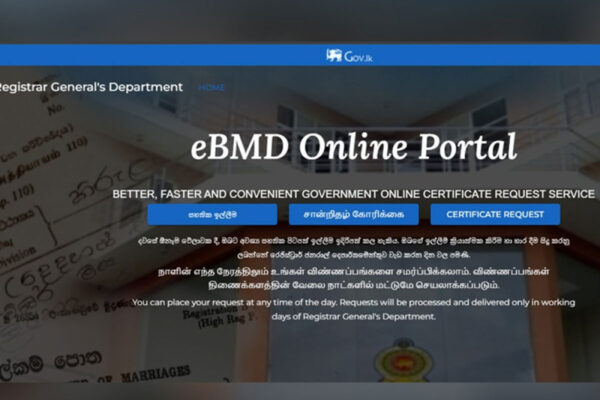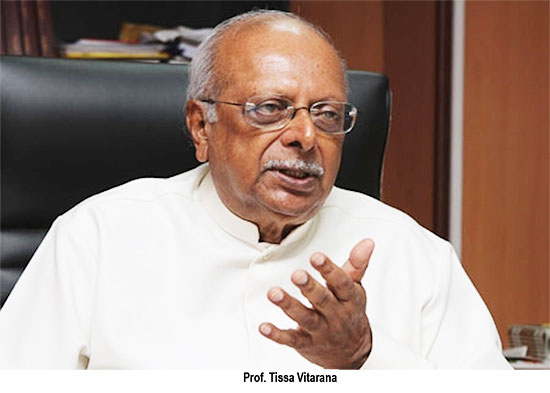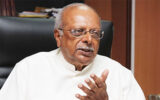“Unselfish devotion is the highest form of submission to the will of the Supreme.” — M.A.C.M. Saleh
COLOMBO :0As we mark the 50th death anniversary of M.A.C.M. Saleh, these words resonate deeply, reminding us of a life lived with extraordinary purpose and dedication. A man of intellect, foresight, and compassion, Saleh’s legacy remains etched in the annals of Sri Lanka’s history as a trailblazer in social reform, Islamic scholarship, and political activism. His influence and wisdom continue to resonate with us, even five decades after his passing.
Born on September 9th, 1901, in Wellawatte, Colombo, Mohamed Abdul Cader Mohamed Saleh was a scholar of remarkable depth and vision. A prolific writer and speaker, his work transcended borders, with contributions to notable publications such as the Hyderabadi publication “Deccan Times”, South African publication “The Muslim Digest” and the “Islamic Review” published by the Woking Muslim Mosque in England. His writings were not merely academic; they were reflections of his commitment to social justice, human dignity, and the unity of all communities. It was this profound sense of virtue and pursuit of justice that led him to become a pivotal figure in Sri Lanka’s political landscape during a time of great change.
Saleh’s legacy was not built solely upon his intellectual contributions, but also through his active participation in shaping the political and social fabric of Sri Lanka. As a Deputy President of the All Ceylon Muslim League, Saleh was instrumental in advocating for the rights of the Muslim community, ensuring their place in Sri Lanka’s diverse society. He was a great source of strength to N. H. M. Abdul Cader and Dr. T.B. Jayah (two illustrious presidents of the All Ceylon Muslim League) in their efforts for constitutional reforms. His involvement in key constitutional reforms—from the Manning Commission to the Soulbury Commission—demonstrated his capacity for both visionary leadership and pragmatic political strategy.
After the establishment of the State Council under the Donoughmore Constitution, leaders from the Sinhalese, Tamil, and Muslim communities, including Saleh, Sir Mohamed Macan Markar, Dr. T. B. Jayah, Sir Razik Fareed, and Dr. Kaleel, united to agitate for self-rule. Together, they formed a formidable force, akin to the one established by D. S. Senanayake, F. R. Senanayake, Sir Baron Jayatilake, and Sir Ponnambalam Ramanathan. Saleh, alongside the late M. H. Amit, ex-MP, played a pivotal role in drafting the memorandum submitted to the Donoughmore Commission. When the cry for 50-50 representation arose, Saleh rejected the notion, firmly believing that Muslims should live in harmony with both the Sinhala and Tamil communities across the island. He would always advise the youth saying, “Your sincere concern about your community and religion is what one should always be proud of and not one’s affiliations to any political party or organization.” The memoranda presented by the All Ceylon Muslim League and the All Ceylon Moors’ Association to the Soulbury Commission contributed significantly to Ceylon’s eventual independence, alongside the efforts of all communities.
Saleh was appointed by Prime Minister S. W. R. D. Bandaranaike to the Local Government Services Commission in 1956 and served until 1958. He also served in the UNESCO National Commission and was also nominated to serve in the Board of Education by the Governor-General Sir Oliver Goonetilleke.
Saleh’s influence extended beyond political reforms. A close friend of Dr. Badi-ud-din Mahmud, Saleh believed in accepting social and political reforms to serve the community while staying attuned to the nation’s political pulse. His belief in unity and progress led him to organize a historic reception for the world’s first female Prime Minister, Sirimavo Bandaranaike, in 1972 at the Maradana Mosque, Colombo grounds, despite opposition from powerful quarters. This act of solidarity stood as a testament to his vision for an inclusive Sri Lanka. Although Saleh’s vast wisdom helped cultivate Muslim national leaders, he never entered the legislature. He came close, contesting the Kalkudah seat in the 1947 elections, paving the way for future leaders like A. H. Macan Markar to eventually succeed in the region.
In addition to his political advocacy, Saleh was deeply engaged in social reform. He was a key figure in the Temperance Movement, which sought to eradicate the social ills associated with alcohol consumption. Furthermore, he played a role in the establishment of the Hilal Committee to promote Islamic values and educational reform. Beyond his public service, Saleh’s wisdom was sought by many, including leaders of the Muslim community and beyond. He was a firm believer in the power of knowledge, and he shared his extensive library of religious and political works with those eager to learn, fostering a new generation of thinkers and leaders.
Furthermore, Saleh firmly believed that peace could never be achieved in the world until the Palestinian issue was resolved. A devoted ally of Dr. T. B. Jayah, he actively participated in mass anti-partition rallies, demanding the restoration of land to the Palestinian people. The commercial hub of Pettah, where these meetings took place, even came to be known as Palestine or Jinnah Maidan. His strong conviction in a free Palestine led him to support His Eminence Haji Amin Al-Husseini, the Grand Mufti of Palestine, and the first President of Motamar al-Alam al-Islami (World Muslim Congress), established by King Ibn Saud in the holy city of Makkah in 1926.
In remembering M.A.C.M. Saleh, we reflect not only on the legacy of a great leader but on the enduring impact of his heart and spirit. A man whose life’s work was driven by an unwavering belief in the power of unity, wisdom, and service to others, Saleh leaves behind a beacon of light for future generations. As we commemorate his 50th death anniversary, let us carry forward his vision—one of selfless devotion, compassion, and a commitment to the ideals of justice, peace, and community. Inna Lillahi Wa Inna Ilayhi Rajioon—”We belong to Allah, and to Him is our return.” May his soul continue to inspire us as we walk the path he so beautifully paved, with love for humanity and a heart dedicated to the greater good.
Saleh’s enduring legacy is complemented by the strength and grace of his loving family. His beloved wife, Marhoom Zulaiha Umma Saleh, who stood by his side throughout his remarkable journey, passed away on June 7, 2006, at the age of 101. Together, they nurtured a family rooted in the values of service, wisdom, and compassion. Saleh is survived by his two sons, Mamoun Saleh, JP, and Z. Ameen Saleh, and two daughters, Ms. Khairul Inaya Mohideen and Ms. Ayesthaul Rila Subki Salahuddin. Their lives and contributions continue to reflect the principles he cherished and championed.















